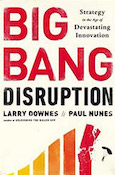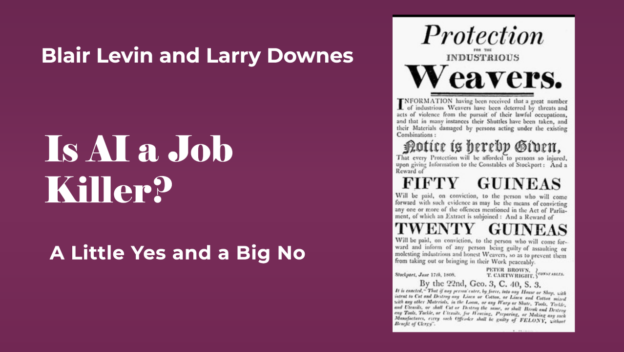For LinkedIn today, Blair Levin and I on the realities of AI’s potential to destroy jobs, a topic about which pretty much everything written so far has been wrong.
Concern about Generative AI’s potential to displace workers and disrupt markets kicked into high gear in 2022, with the public release of Open AI’s ChatGPT. AI’s seemingly magical ability to instantly create new works of art and literature has generated a range of responses from delight to outrage, inspiring equally varied efforts to stop or at least slow down the pace of change—in everything from President Biden’s recent Executive Order to strikes by Hollywood actors and writers.
But will large-scale deployment of AI across industries really lead to massive job losses for creative and other professional workers? The history of previous disruptors suggests the answer is initially yes but ultimately no, a staggered sequence that yields crucial and often counter-intuitive lessons for business, labor, and government.
All stakeholders need to embrace these learnings. Misguided responses will distract the private and public sectors from implementing strategies to accelerate the adoption of AI, delaying significant social benefits and new job creation that will more than offset the losses. And even the most well-intended efforts to reduce AI’s early impact on jobs are almost certain to fail, diverting us from pragmatic solutions targeted to the most affected workers.






